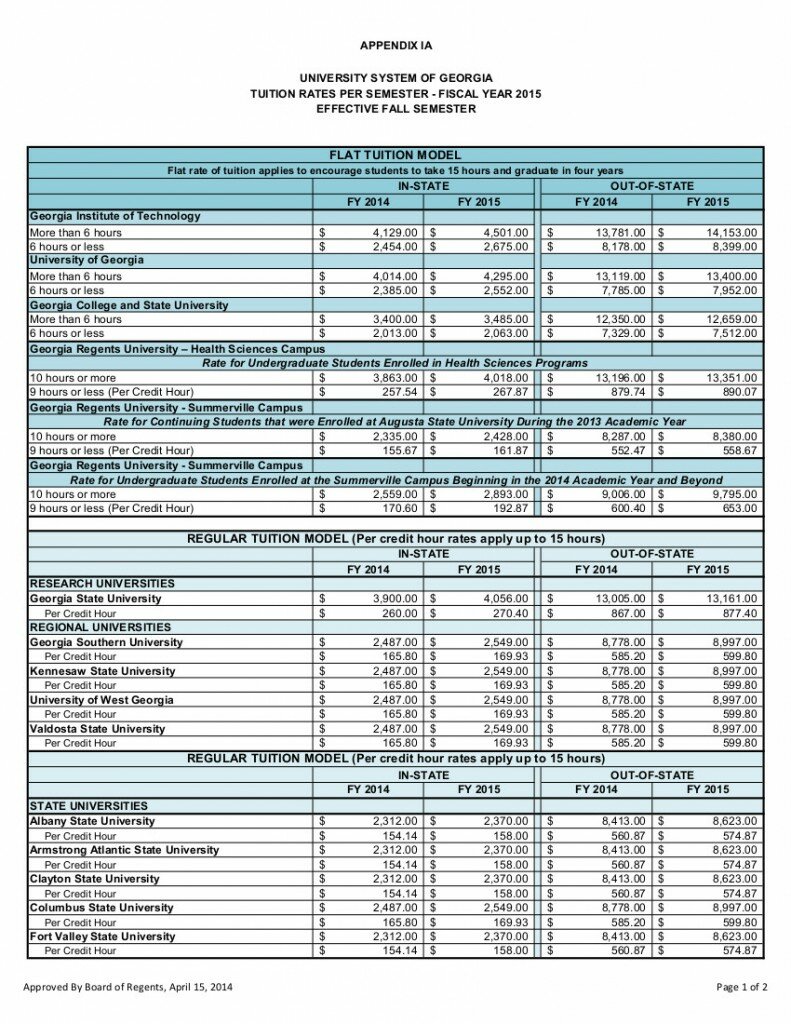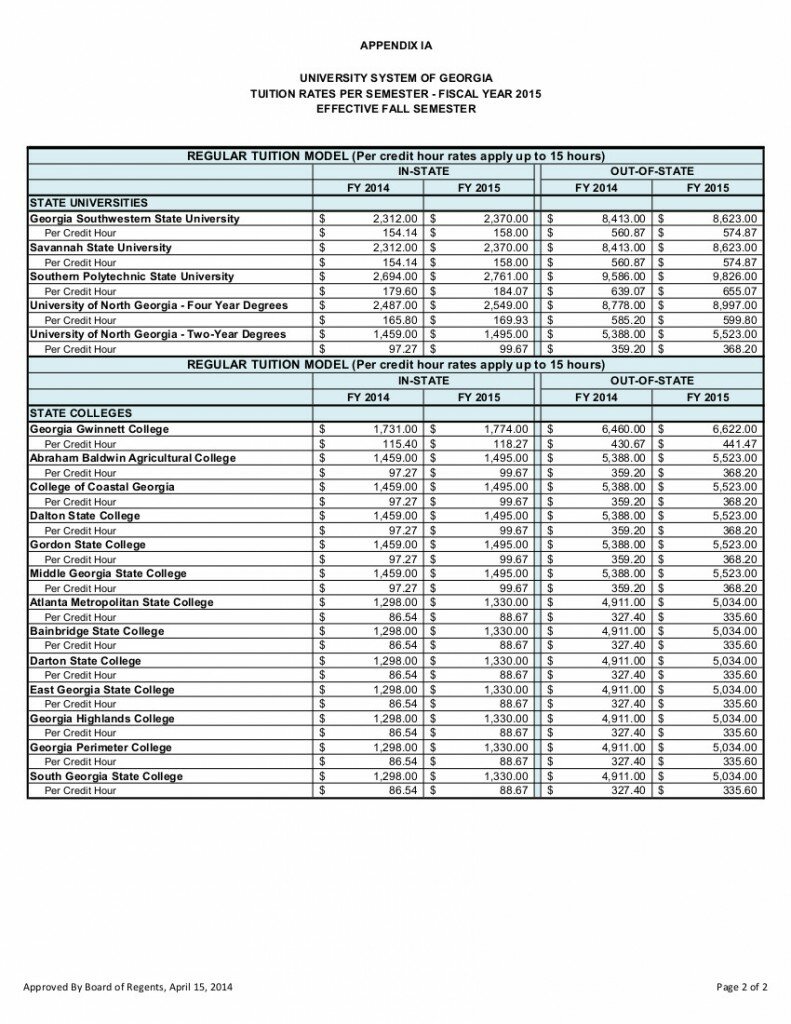Key Points of the HOPE Scholarship Program
- Students must keep a minimum 3.0 HOPE grade point average (GPA) to stay qualified for the HOPE Scholarship.
- All college credit hours taken (attempted) since high school graduation are used in calculating the HOPE Attempted Hours and the HOPE GPA.
- HOPE Scholarship students are monitored to see if they are maintaining a minimum 3.0 HOPE GPA at the end of the semesters where they have attempted their 30th, 60th, 90th hours and at the conclusion of each spring semester.
- The HOPE Scholarship Award Amount is based on a per credit hour basis. Payment is maxed out or capped at 15 hours per semester.
- Once a student has 127 HOPE Attempted Hours or he/she has a total of 127 HOPE Paid Hours, or has earned a bachelor’s degree, the student is no longer eligible. This is applicable to all degree programs.
- HOPE Scholarship has a 127 hour “hard” maximum cap. As an example, if a student ends a semester with 126 HOPE Attempted or Paid Hours, the HOPE Scholarship will only pay for 1 hour of the HOPE award rate for the following semester (as long as the student satisfies other eligibility requirements). However, if the degree program requires more than 127 hours, the HOPE Scholarship will cover the hours that are required for the degree program.
- Students who lose their HOPE Scholarship are only allowed to regain qualification one time.
- HOPE Scholarship eligibility for students who received HOPE Scholarship before summer 2011 will end June 30, 2015. Eligibility for students not receiving the HOPE Scholarship before the summer of 2011 will expire 7 years after the date of the students’ high school graduation.
See more information regarding the HOPE Scholarship Program that is available on the GAcollege411 Web site.
You can review the 2013-14 HOPE Scholarship regulations at the Hope Scholarship Knowledgebase.
Example HOPE Scholarship Award Amounts for the University of Georgia
The dollar amount of each semester’s HOPE Scholarship award is determined by multiplying $218.46 X the number of hours in which the student is enrolled, up to 15 hours.
Since the HOPE Scholarship amount is based on the total number of hours enrolled in the semester, the HOPE amount will be less when students enroll in fewer than 15 hours as reflected below. The HOPE Award Amount cannot be increased for students who enroll in more than 15 hours. The award assumes that all tuition above 15 hours is actually capped at a 15 hour rate; that is, 15 hours and above is considered a full time rate and is charged at 15 hours.
See the GSFC “HOPE Award Amounts by Institution for Fiscal Year 2014, Beginning Fall Term” at here for enrollment in 15 hours or less.
| HOPE Scholarship and the Flat Rate Tuition Model |
| Student Enrolled in 15 hours |
| Tuition Assessed: |
$4,014.00 |
| HOPE Payment: |
- $3,276.90 |
| Out of Pocket: |
= $737.10 |
| Student Enrolled in 13 hours |
| Tuition Assessed: |
$4,014.00 |
| HOPE Payment: |
- $2,839.98 |
| Out of Pocket: |
= $1,174.02 |
| Out of pocket difference between 15 and 13 hours: $436.92 |
Additional UGA Specific HOPE Scholarship Information
HOPE Grade Point Average (GPA) and HOPE Attempted Hours under at +/- system
As an example, the University of Georgia implements a Plus/Minus grading system; however, not all schools have a +/- system; therefore, for the purpose of calculating the cumulative Grade Point Average (GPA) for HOPE Scholarship eligibility, only letter grades of A through F are recognized so any Plus or Minus will be disregarded.
2013-14 HOPE Amounts (Maximum $218.46 per Credit Hour)
| Flat Tuition Rate Students |
| Hours |
13-14 Tuition Covered by HOPE |
| 15 |
$3,276.9 |
| 14 |
$3,058.44 |
| 13 |
$2,839.98 |
| 12 |
$2,621.52 |
| 11 |
$2,403.06 |
| 10 |
$2,184.60 |
| 9 |
$1,966.14 |
| 8 |
$1,747.68 |
| 7 |
$1,529.22 |
| 6 |
$1,310.76 |
| 5 |
$1,092.30 |
| 4 |
$873.84 |
| 3 |
$655.38 |
| 2 |
$436.92 |
| 1 |
$218.46 |
|
The Zell Miller Scholarship Program
For a student to qualify for the new Zell Miller Scholarship, the student must graduate from an eligible high school 2007 or later with at minimum 3.7 grade point average (GPA) as calculated by HOPE Scholarship regulations and the student also must have scored at least a 1200 on the SAT (Math and Verbal) or a 26 on the ACT Composite, in a single test administration prior to high school graduation or be their high school Valedictorian or Salutatorian.
Initial eligibility for the Zell Miller Scholarship is determined by the Georgia Student Finance Commission (GSFC). Students determined eligible for the Zell Miller Scholarship are subject to all the HOPE Scholarship eligibility requirements except they must maintain a minimum 3.3 grade point average (GPA) on all coursework attempted since high school graduation instead of the minimum 3.0 gpa required for HOPE Scholarship recipients.
You can review the 2013-14 Zell Miller Scholarship regulations at the Hope Scholarship Knowledge base.
Zell Miller Scholarship Award Amounts
For 2013-14 the Zell Miller Scholarship provides a maximum Award Amount of:
- $4,014 to students enrolled in 7 or more hours, and
- $2,385 to students enrolled in 6 or fewer hours.
Returning Students and the Zell Miller Scholarship
The Georgia Student Finance Commission (GSFC) has provided colleges and universities the names of students who graduated from a Georgia high school prior to 2011 with at least a 3.7 grade point average (GPA) and (prior to high school graduation) scored at least a 1200 on the SAT or a 26 on the ACT in a single test administration or were their high school valedictorian or salutatorian. The Zell Miller Scholarship will be awarded to these students instead of the HOPE Scholarship if they are currently eligible for the HOPE Scholarship and their college HOPE Grade Point Average (GPA) at their most recent HOPE Scholarship checkpoint was at least 3.3.
Maximum 127 Attempted or Paid Hours
The Zell Miller Scholarship has a 127 Attempted Hour and Paid Hour hard cap. All college credit hours attempted since high school graduation are counted in determining the number of Zell Scholarship Attempted Hours. If the student finishes a semester with 126 HOPE and/or Zell Miller Scholarship Attempted or Paid hours, the Zell Miller Scholarship will only pay for 1 hour the following semester (assuming the student continues to meet other eligibility requirements).
Zell Miller Scholarship Grade Point Average (GPA) and Attempted Hours
As with the HOPE Scholarship, Plus/Minus grades are not used for calculation of the Zell Miller Scholarship GPA. For the purpose of calculating the cumulative Grade Point Average (GPA) for HOPE and Zell Miller Scholarship eligibility, regulations recognize only letter grades of A through F so any Plus or Minus will be disregarded.
2013-14 Zell Miller Scholarship Amounts
| Flat Tuition Rate Students |
| Hours |
13-14 Tuition Covered by Zell |
| 15 |
$4,014.00 |
| 14 |
$4,014.00 |
| 13 |
$4,014.00 |
| 12 |
$4,014.00 |
| 11 |
$4,014.00 |
| 10 |
$4,014.00 |
| 9 |
$4,014.00 |
| 8 |
$4,014.00 |
| 7 |
$4,014.00 |
| 6 |
$2,385.00 |
| 5 |
$2,385.00 |
| 4 |
$2,385.00 |
| 3 |
$2,385.00 |
| 2 |
$2,385.00 |
| 1 |
$2,385.00 |
|

